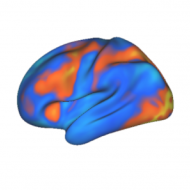Most neuroscientists don't use human subjects, and many tend to forget this important point: All neuroscience with non-human subjects is theoretical. If the brain of a mouse is understood in exquisite detail, it is only relevant (outside veterinary medicine) in so far as it is relevant to human brains. Similarly, if a computational model can …
Monthly Archives: March 2007
How Hangovers Work
I thought this article at Howstuffworks was appropriate just after the all day drinking fest that is St. Patrick's Day for many. According to the article, a hangover from a heavy night (and/or day) of drinking is mainly due to dehydration. The dehydration process begins with a chemical reaction in the brain; specifically the pituitary …
Neural Network “Learning Rules”
Most neurocomputational models are not hard-wired to perform a task. Instead, they are typically equipped with some kind of learning process. In this post, I'll introduce some notions of how neural networks can learn. Understanding learning processes is important for cognitive neuroscience because they may underly the development of cognitive ability. Let's begin with a …
Predicting Intentions: Implications for Free Will
News about a neuroimaging group's attempts to predict intentions hit the wire a few days ago. The major theme was how mindreading might be used for unethical purposes. What about its more profound implications? If your intentions can be predicted before you've even made a conscious decision, then your will must be determined by brain …
Continue reading “Predicting Intentions: Implications for Free Will”
